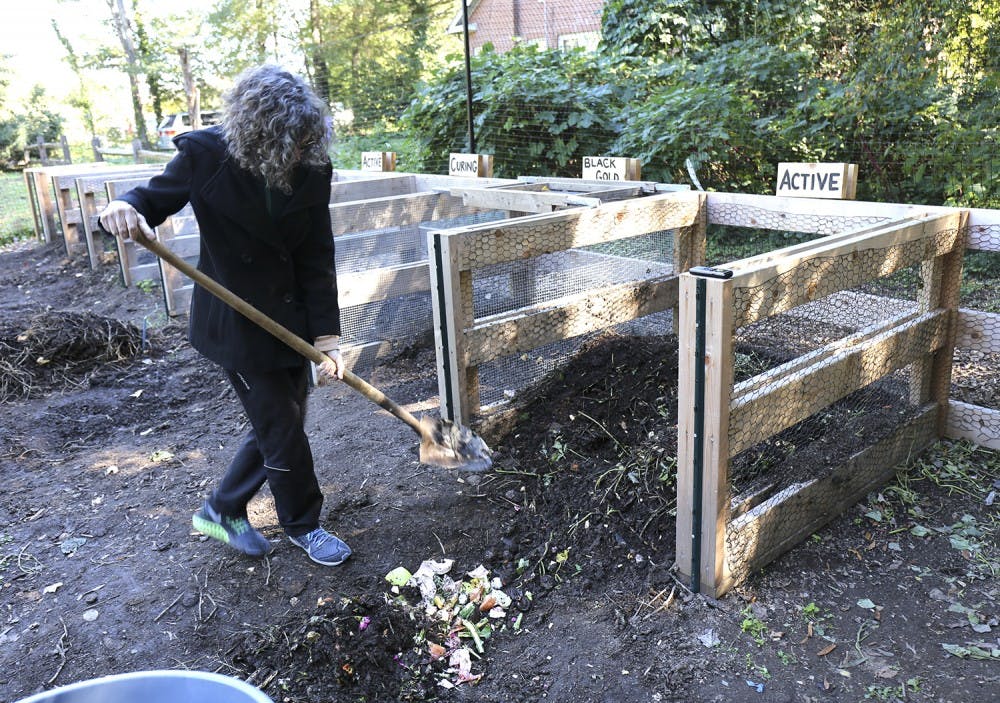The Residence Hall Association has expanded the dorm composting program from four residential communities to nine.
In spring 2014, the only communities with the program were Hinton James, Connor, Manning East and Ehringhaus. The program now includes every residence hall on South Campus, plus Cobb and Connor. Taylor Bates, RHA president, said he hopes the program will grow even more.
“Hopefully by the end of the year or very early next year, every single community on campus will have composting,” he said.
Natalia Posthill, recycling coordinator at the Office of Waste Reduction and Recycling, said 2,015 pounds of compost were collected from dorms last year.
Posthill said she worked with students to start the program three years ago with the help of a grant from the North Carolina Department of Environmental Quality. OWRR matched 25 percent of the grant, and the overall cost for supplies and employee salaries was about $5,000, Posthill said.
“Whenever you start a new program, the first question is, ‘Who’s gonna pay for it?’” she said. “The fact that we got grant funding helped alleviate some of those concerns.”
Posthill said she aims to educate people about compost to combat the idea that compost is gross. “This is the same stuff that would be going into your trash can,” she said. “We’re just putting it in a different can.”
Bates said RHA chose to implement this program by gauging student interest through community events, polls and voting. He said if students are interested in having compost bins available at their dorm, they should contact their community governor.
Bates said students in participating communities can ask for a compost bin at the front desk.




